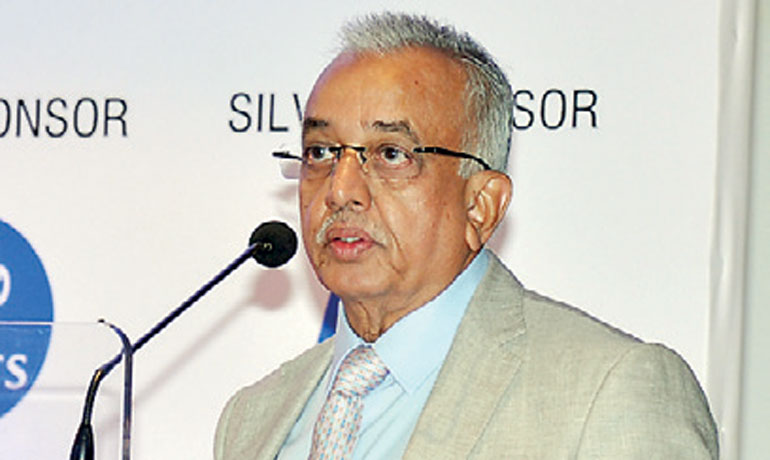Wednesday Feb 18, 2026
Wednesday Feb 18, 2026
Thursday, 20 July 2017 00:28 - - {{hitsCtrl.values.hits}}

Development Strategies and International Trade Minister Malik Samarawickrama
As negotiations on Free Trade Agreements (FTAs) progress, the Government is mulling introducing a trade adjustment package to assist local industrialists improve their competitiveness.
Development Strategies and International Trade Minister Malik Samara-wickrama told the forum that GSP+ gives Sri Lanka the chance to deepen backward integration so that export earnings are more equitably distributed among farmer communities.
“We are considering introducing a trade adjustment package to local industrialists to upgrade machinery and introduce modern technology. This is so that these industries can be more competitive and serve the local market as well as export to regional and global markets,” he said.
“My ministry is committed to improving the ease of doing business in Sri Lanka and we have set an ambitious target of jumping 40 places in the World Bank’s Ease of Doing Business Index by 2020 and are conscious that other countries are not remaining still.”
The GSP+ scheme encourages increased value addition within Sri Lanka and thereby promotes backward integration, resulting in the setting up of new industries and creating new employment opportunities in the country, he added. . With the new national export strategy under the development and support of the European International Trade Centre, new innovative product lines such as electronics, light engineering products, wellness products and certain agriculture products such as spices can develop.
“Considerable gains are expected from agriculture products such as fresh and processed vegetables and fruits and coconut-related products. The benefits of GSP+ have to trickle down to Sri Lanka’s rural workforce. The concessions under GSP+ are likely to have assisted the financial development of farmers engaged in the fisheries industry in Sri Lanka. New export opportunities may develop and raise the income levels of farmers. Returns need to be split between the exporters and the farmer with as much as 50% of it going back to the farmers. Such benefits would strengthen the supply base to sustain supply for the EU market.”
Potential for agribusiness to partner foreign companies and transfer technical skills needs to be encouraged to work more effectively and work with value chains, he observed. The fisheries sector expects substantial growth through the regained GSP+ facility as experts believe demand will double in value while enjoying current sustainable fishing practices. In just the first five months alone exports have grown by 40% and the industry plans to have new projects such as fish farming and deep sea fishing to meet demand.
“Apparel exports are expected to increase by $ 500 million annually as a result of GSP+, creating approximately 20,000 new jobs. More EU companies are expected to change their sourcing strategy to Sri Lanka given that rules of origin call for fabric to be sourced from Sri Lanka or from an area that qualifies for GSP+, resulting in an increase of fabric sourced from Sri Lankan companies, rather than from countries such as China.”